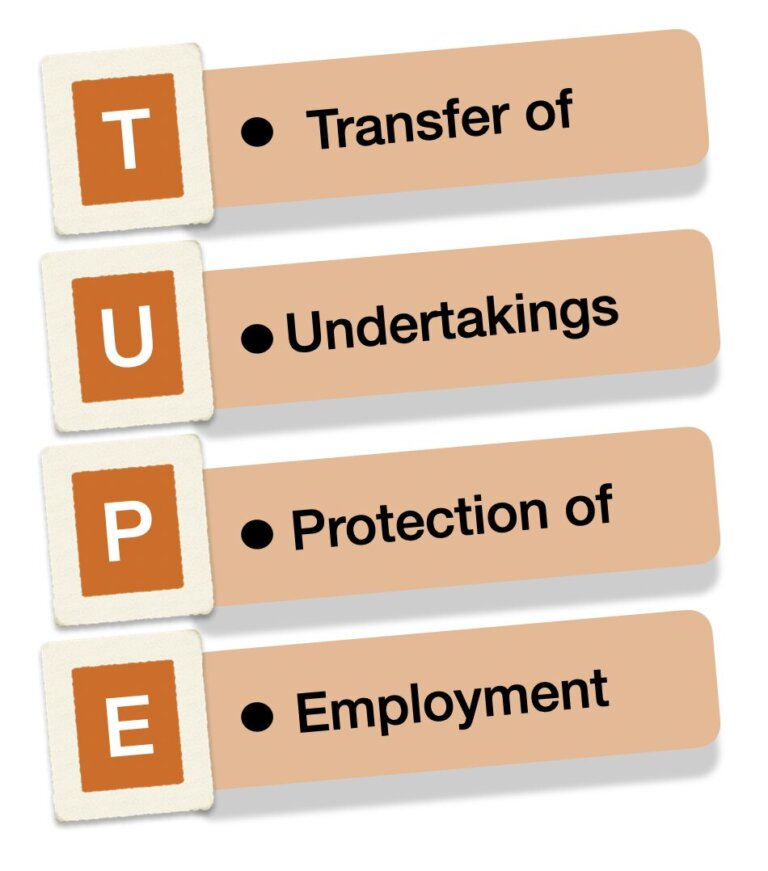The TUPE transfer process, what you need to know and why it isn’t as daunting as it might seem.
- Published 21st Aug 25
- Categories Blog

For many schools looking to take their catering service in house, Transfer of Undertakings (Protection of Employment) Regulations – (TUPE) process can seem a daunting prospect. We look at the steps necessary to ensure a smooth transfer over of the catering staff to the school team.
TUPE stands for Transfer of Undertakings (Protection of Employment).
TUPE regulations protect employees’ rights when they transfer to a new employer.
A TUPE transfer is when there’s either:
- A business transfer
- A service provider change
A business transfer is when an organisation, or part of it, is transferred from one employer to
another.
A service provider change is when a service is transferred to a new provider. For example,
when another company / public body takes over a contract for school catering.
The part of the organisation that’s transferring must be in the UK for TUPE to apply.
Why TUPE?
The purpose of TUPE is to protect employees when the business which employs them ceases to provide the service provision to a company or organisation, but the service provision, which will have the same or very similar specification, is to be provided by another company or organisation.
Transfers within the public sector aren’t always covered by TUPE. An example in the school meals industry would be if a Council is the existing employer and provides the catering service and a school takes the catering in house (new employer) and is a community school, whose employer is still the same Council.
However, there is always an expectation that in these situations the principles of TUPE will be applied and the right to employment protection is maintained.
If council employees were transferring over to an Academy or a Multi Academy Trust TUPE would apply.
TUPE Steps
Step one – when an organisation (new employer), in this case an Academy or School has informed the current provider that they are terminating or not renewing the contract, they can request the Employer Liability Information (ELI) from the current employer. It is essential for the new employer to know of any employment liabilities which arise and they will inherit, before they become the employer.
The ELI will also provide the necessary information on pay rates and paid weeks. These can then be compared to the rates and paid weeks of staff already employed in similar roles.
The ELI will also enable the new employer to be able to budget for any assimilation costs of moving the transferring staff onto the pay rates adopted by the School/ Academy.
All employees who are a permanent employee of the business, or part of the business, that’s transferring will automatically transfer with it.
An employer cannot choose which employees they want to transfer.
The previous employer, has by law, to provide the following information to the new employer at least 28 days before the transfer:
- identity and age of each employee
- particulars of employment
- details of any disciplinary or grievance procedures during the last 2 years
- pension arrangements
- additional benefits such as life assurance schemes, bonuses
- details of any collective agreement which applies to the employee
It’s also important that the new employer gains assurances from the existing employer that no changes can be made to the supplied TUPE information once supplied, without prior agreement. We would advise that the school requests written confirmation from the outgoing employer to guarantee that the TUPE information is correct and in full.
Step two – The employer whose contract/ Service Level Agreement is ending must consult with their affected employees. They must inform them of the legal impact on their employment rights and any proposed “measures” that the new employer is proposing to make on transfer.
It is the norm that the outgoing employer will ask the incoming employer what the measures will be, so that they can inform their employees, this is normally in the form of a “measures letter”.
Representatives, such a trade unions, of the affected staff must also be informed and involved.
The new employer also has a duty to also consult with the staff that are transferring.
This ensures all parties involved are aware of the proposed measures and have an opportunity to review and raise any concerns.
The staff will have to transfer on the current terms and conditions, paid weeks, pay rates, employer pension contributions, the transfer cannot be financially detrimental to the employee.
“Measures” tend to cover matters such as a change to the pay date each month, different shift pattern, reporting procedures for sickness etc.
The consultation period should be meaningful, but may also be dependent on any collective agreements on consultation timelines that the existing employer has with trade unions.
Employees can refuse to work for a new employer. This would in effect mean they are resigning- they would not normally be able to claim unfair dismissal or redundancy as there is a job for them at the point of transfer, they are choosing not to take that job.
They don’t have to give prior notice, they can simply tell the employer or new employer, right up to before the transfer happens. Employment then ends at the time of transfer.
Should the existing employer wish to offer alternative employment to an employee they can, but the existing employer has no obligation to do this.
Under TUPE, the new employer takes over the employees’ contract, including:
- all previous terms and conditions of employment
- At least comparable employer pension contributions
- holiday entitlement and paid weeks
- period of continuous employment
- any collective agreements previously made
Before the transfer
The incoming employer cannot make changes to an employee’s terms and conditions prior to the transfer – even if the employee agrees to the change.
Can we make changes to the employee’s terms and conditions after the transfer?
A new employer can’t change an employee’s terms and conditions if the reason is the transfer itself.
However, an employer can make changes to the employee’s terms and conditions if there is an ‘economic, technical or organisational’ (ETO) reason for doing so.
- “Economic” reasons are to do with how the company / contract is performing
- “Technical” reasons are to do with the equipment or processes the company uses
- “Organisational reasons” are to do with the structure of the company.
When a school/academy takes over the employment of the staff there are often positive changes. For example, improved pension schemes, harmonising paid weeks and pay rates, but this can come at an additional cost, hence the need to have all the ELI checked to be fully aware of the implications and to able to budget accordingly.
A business case will need to be prepared detailing the reasoning and rationale if there is the intention to propose changes to an employee’s terms and conditions.
These changes should be consulted on post transfer, in conjunction with trade union representatives.
Here at CMC, we frequently support schools and academies during their TUPE process, but would also recommend that advice is sought from your HR provider before initiating the process.
